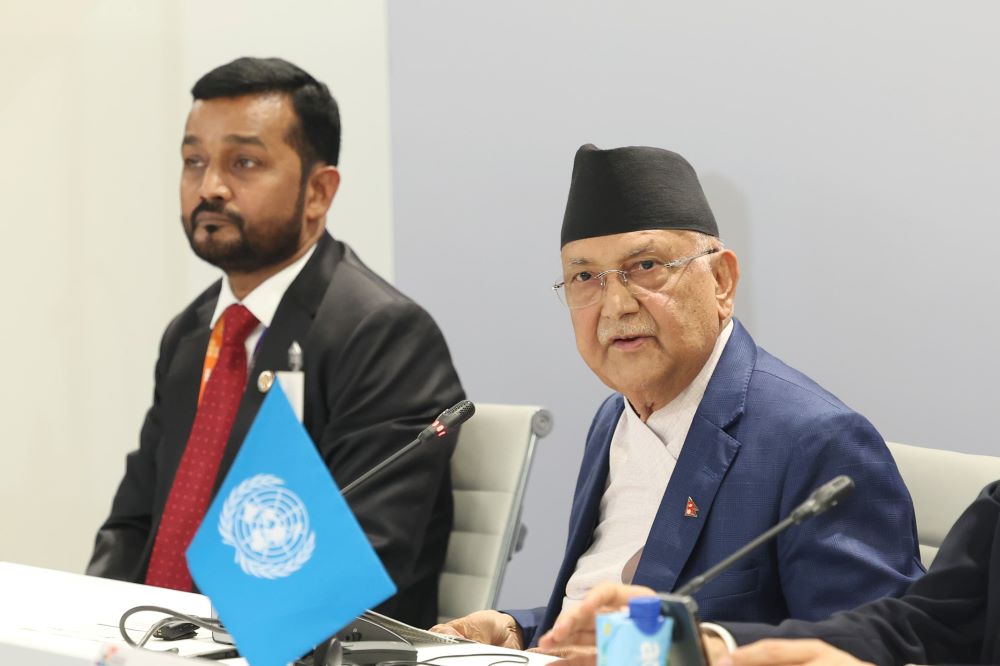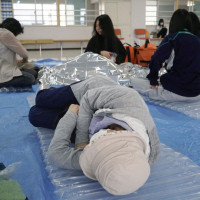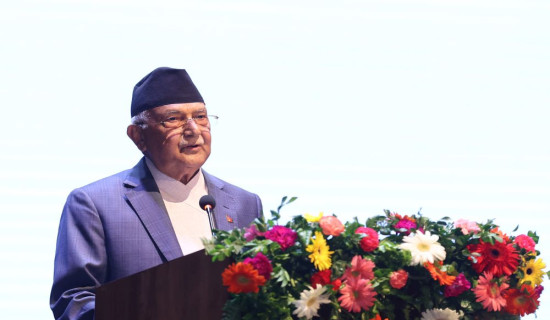- Thursday, 31 July 2025
PM Oli urges development partners to continue supports in WASH
Kathmandu, July 1: Prime Minister KP Sharma Oli has said that waterborne diseases remain a major public health crisis in many countries and to meet the goal of universal WASH coverage by 2030, we must accelerate progress—by as much as six-fold.
"This demands not only commitment, but collective action. We must work together to build a world where clean water, safe sanitation, and hygiene are guaranteed rights—not distant dreams."
The Prime Minister was speaking at a side event organized in the margins of the Fourth International Conference on Financing for Development (FfD4) jointly organized by the Governments of Nepal and Burundi in collaboration with Sanitation and Water for All (SWA) in Seville, Spain, on Tuesday.
On the occasion, he stated that Nepal remains deeply committed to ensuring access to WASH for all. Our constitution recognises access to clean water and sanitation as a fundamental right of every citizen and Nepal is determined to realise the national aspiration of “Prosperous Nepal, Happy Nepali”—where every household enjoys essential services, including WASH. "As of 2024, Nepal has achieved 96 per cent basic water supply coverage. Yet challenges remain—especially in delivering quality and sustainable WASH services to all," Oli shared.
The tireless advocacy of SWA has brought WASH—water, sanitation, and hygiene—to the heart of the global policy discourse, Oli added.
Prime Minister Oli was of the view that WASH is not just another development goal. It is about life, health, and human dignity. "It prevents deadly outbreaks. It keeps children in school. It empowers women and girls. And it breaks the vicious cycle of poverty and disease," PM Oli stated.
Announcing that Nepal has joined the Heads of State Initiative (HoSI) on WASH on Tuesday, Oli described that this manifests our strong political will to make WASH a national success story.
He urged all the development partners to continue supporting Nepal in this endeavor adding that Nepal can build the infrastructure and strengthen the institutions needed to achieve our shared goals with their help.
The Prime Minister said that despite being one of the most fundamental human needs, billions still live without access to water, sanitation, and hygiene and added that over 2 billion people lack safe drinking water and 3.5 billion do not have access to safely managed sanitation.
"Waterborne diseases are on the rise. Poor sanitation continues to spread deadly pathogens. Children still die from preventable illnesses like diarrhoea—simply because they lack clean water and safe toilets," Oli added.
Likewise, Prime Minister Oli praised the SWA for its strong collaboration in organising this event which he said reflects the organization's unwavering commitment to ensuring these basic human rights.(RSS)






-original-thumb.jpg)

-square-thumb.jpg)


-original-thumb.jpg)
-original-thumb.jpg)
-original-thumb.jpg)
-original-thumb.jpg)

